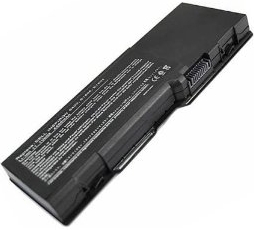The Chemistry of Laptop Batteries Explained
By Mansi Aggarwal

Laptop batteries come in all shapes and sizes also differ in their chemical composition. The
chemistry of a battery refers to the chemical make-up of the cells inside the outer casing.
The most common chemistries used in laptop batteries are:
NiCad (Nickel Cadmium) This is the oldest technology and is the least commonly used
nowadays. NiCad batteries are prone to the “Memory effect” and are heavier than the
newer technologies. NiCad is not environmentally friendly chemistry as it contains heavy
metals, which cannot be disposed of in landfill sites. Most manufacturers have stopped
producing batteries of this type chemistry. As an end user it will be increasingly difficult
to source these batteries. The best alternative is external battery packs.
NiMH (Nickel Metal Hydride) these batteries are less likely to be prone to the memory
effect and have a much better power to weight ratio than NiCad. This is a commonly
used chemistry. These batteries are also being phased out by most manufacturers.
However, many have lithium-ion versions that are compatible. Always consult the
manufacturer or a reputable laptop battery supplier.
Li-Ion (Lithium Ion) - This is becoming the dominant technology due to its excellent
power to weight ratio. Such considerations are becoming more important as mobile
devices become smaller and lighter and battery weight becomes significant. Another
plus point for Li-Ion is that it doesn't suffer the memory effect at all. These batteries
do have a tendency to lose charge quickly towards the end of their effective life span.
If this starts to happen the battery must be replaced.
These three technologies are quite different in the way they charge and therefore
should not be substituted unless the device has been designed to take different chemistries.
The owner's manual will describe which batteries are suitable.
Mansi aggarwal writes about
[the website computerbattries.co.uk cannot be found] Lithium Ion laptop batteries

More Computer Anatomy Articles:
• SDRAM Types: DDR, DDR2, DDR3, DDR4
• An Overview of the Printed Circuit Board (PCB) Fabrication Process
• Basic Computer Thermodynamics
• Laptop Computer Bottom Access Covers
• Tips and Techniques For Building Your Own PC
• Wireless USB
• 1G, 2G, 3G, and 4G Cellular Wireless Standards
• A Definitive Guide on How to Choose Your New PC
• PC Video
• Understanding Your Motherboard
| 
